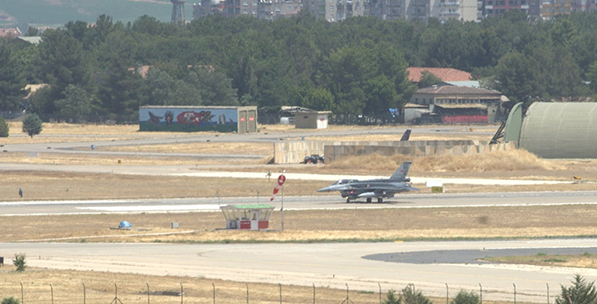Is Turkey's new approach a tactical or a strategic move against ISIL? Furthermore, what are the domestic repercussions of Turkish military incursions against the PKK, especially regarding the Kurdish peace process?
The ultimate goal of Turkish foreign policy towards the Syrian civil war has not changed. Ankara has been supporting the Syrian opposition groups to get rid of the Assad regime and establish a democratic political system - ensuring social and political autonomy for all political entities and ethnic groups living in the country.
In this context, the most recent moves by Turkish military forces against both ISIL and PKK targets can be read as tactical, rather than strategic.
Then, what has changed recently in Syria that led Turkey to pursue these tactical changes?
So far in 2015, Syrian opposition groups, which established a large coalition under the name of the Jaish al-Fateh (the Army of Conquest) noticeably weakened the Assad regime.
Then, after the intensive bombardment by the US-led coalition and heavy attacks by PYD forces on the ground, and eventually after being driven out of many of its strongholds, ISIL began to move westward and attack cities under the control of the Syrian opposition groups, including the city of Azaz - the most significant border crossing for the opposition forces.
That border crossing began to be heavily exploited by both ISIL and PYD forces. Turkey had been keeping its Syrian borders open solely for humanitarian reasons.
However, both PYD and ISIL had been using the border to recruit militants for their organisations.
With the creation of a safe zone, or an ISIL-free zone, between Jarablus and Azaz, Turkey may change the balance of power among the four warring sides (the Assad regime, ISIL, PYD, and the Syrian opposition) of the Syrian civil war and thus change the course of events.
Turkey wants to take violence and chaos away from its doors. For this, it supports initiated defensive attacks against the strongholds of both PYD and ISIL. With the creation of a safe zone, ISIL will not share a common border with Turkey any more.
Additionally, Turkey does not want to face any further problems regarding refugees. Currently it hosts about two million refugees; Ankara intends to prevent a new influx of refugees from Syria.
Arguably, a safe zone can also aid Syrian opposition groups by providing an area to "train and equip" their forces and assist in creating some kind of governing structure to control a post-Assad Syria.
Turkey also hopes to prevent the Kurds from obtaining a unified territory throughout the Turkish-Syrian border.
It will prevent the PYD and YPG from changing the demography of the region, thwart the legitimisation of these organisations and prevent the Kurds of Syria from having influence over Kurds living in Turkey.
Turkey was about to complete the peace process with its own Kurds, but the recent developments in northern Syria stopped and changed the course of action inside Turkey.
[Al Jazeera, August 04, 2015]







